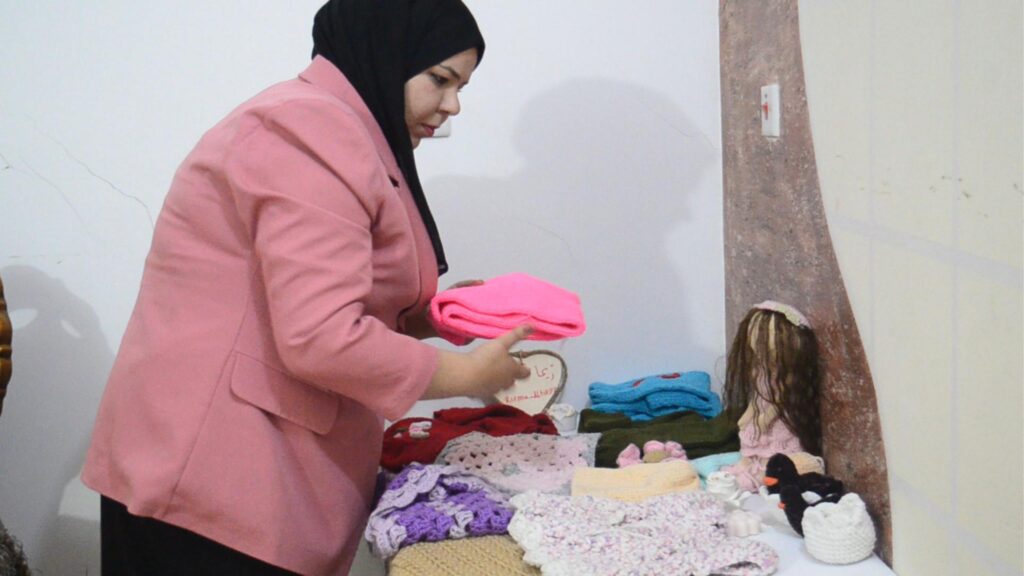Iraq: GIEWS Country Brief: Iraq 31-January-2020
FOOD SECURITY SNAPSHOT
Favourable weather conditions for crop development after early season dryness
Close?to?record cereal crop harvested in 2019
Cereal import requirements forecast at average level
About 1.8 million people food insecure, mostly IDPs and returnees
Favourable weather conditions for crop development after early season dryness
Planting of the winter grain crop, to be harvested from mid?April 2020, started in October and concluded in December. The northern part of the country, including the cereal?producing belt of Kirkuk, Nineveh and Al Suleymaniah governorates, was affected by early autumn dryness until late November, but abundant precipitation in December and early January significantly improved soil moisture. As of mid?January 2020, moisture reserves for dormant winter grains were deemed satisfactory.
The Ministry of Agriculture provides incentives to farmers to cultivate crops according to a national agricultural plan that instructs the areas farmers should plant with specific crops. Incentives include the distribution of subsidized certified seeds and fertilizers at about 50?70 percent less than the market price. Farmers not complying to the national agricultural plan are required to procure inputs at full market price or resort to planting their own seeds saved from previous harvest. In 2019, the national plan called for 1.8 million hectares to be planted with winter wheat.
Although reconstruction efforts are still in the early stages, some progress has been reported on reparations of damaged irrigation structures in the former conflict areas.
Close?to?record 2019 cereal production
Despite the economic constraints due to the conflict and some flooding which occurred in March 2019, the 2019 cereal harvest is estimated at a near?record level of 6.4 million tonnes. Floods affected mainly the minor cereal producing areas of the eastern governorates of Diyala, Wasit, Missan and Al Basrah along the Tigris river. Elsewhere in the country, exceptionally favourable weather conditions prevailed since the start of the season, with timely and abundant rainfall amounts.
The Central Statistical Organization estimated the 2019 production of wheat and barley at 4.3 and 1.5 million tonnes, respectively. Wheat production increased 30 percent compared to the average. Barley production exceeded the average by three times.
Purchasing prices of the Grain Board of Iraq for the wheat crop has remained unchanged since 2017, when they were sharply reduced from the previous years following lower international oil prices. In 2019, prices ranged from IQD 420 000 (at the beginning of the purchasing season in April 2019, equivalent to USD 350) to IQD 560 000 (USD 467) per tonne, depending on the quality of the grain. The wheat purchased is then used in the Public Distribution System (PDS), which distributes subsidized basic food rations to the population.
Average import requirements forecast
Cereal import requirements in the current 2019/20 marketing year (July/June) are forecast at 4.2 million tonnes, including 2.7 million tonnes of wheat (imported mostly as flour) and 1.3 million tonnes of rice. The total cereal import requirements, reflecting a strong 2019 domestic harvest, are forecast to be similar to the average and about 20 percent below the import requirement of the previous year.
About 1.77 million people food insecure, mostly IDPs and returnees
According to the 2020 Humanitarian Needs Overview (HNO) released in November 2019, the number of people in need of humanitarian assistance decreased from 6.7 million in 2019 to 4.1 million. More than half of them are concentrated in the governorates of Nineveh and Anbar. The number of food insecure people is estimated at 1.77 million, mostly IDPs and returnees, down from 2.5 million in 2019, with the majority concentrated in the governorates of Diyala, Nineveh, Salah Al-Din, Anbar and Kirkuk.
Since early October 2019, widespread social unrest and violent protests driven by resentment over poor public services and lack of employment opportunities continue to threaten political stability. Instability would likely threaten food security outcomes in the country.



